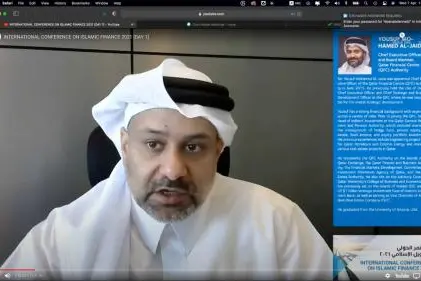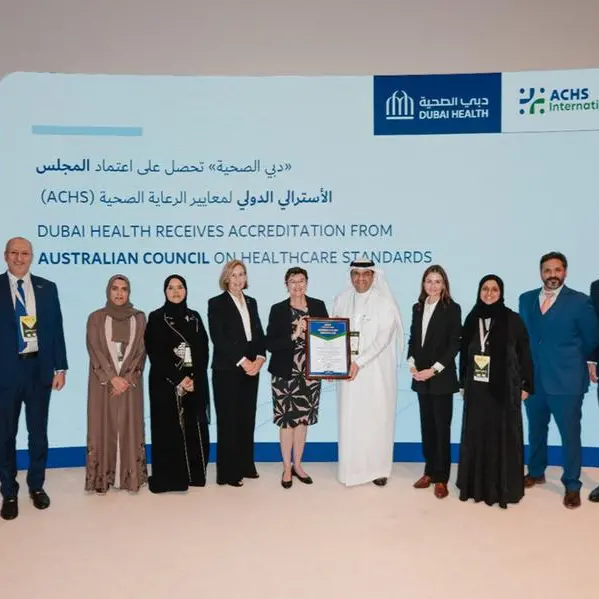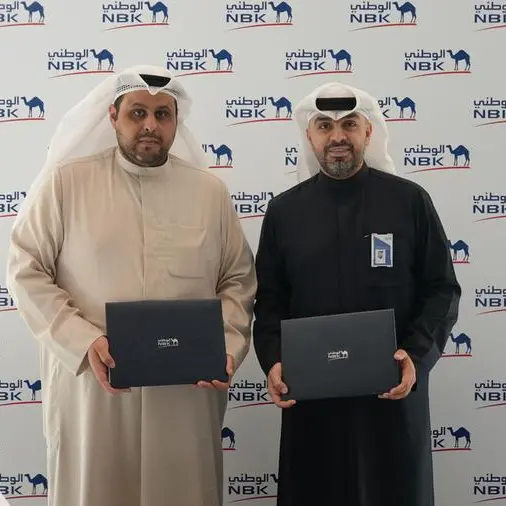PHOTO
Doha: – With a focus on sustainable economic development after the pandemic, the Center for Islamic Economics and Finance (CIEF) at the College of Islamic Studies (CIS), Hamad Bin Khalifa University (HBKU), held the fourth International Conference on Islamic Finance (ICIF) from April 4-6, with the support of the Qatar Financial Centre (QFC) Authority.
The three-day conference provided a platform for dialogue and discussions to evaluate the opportunities and barriers for sustainable economic development under the “new normal”, which has deepened the digital economy and Fourth Industrial Revolution (4IR). In the context of Islamic finance and economy (IFE), academic papers and policy-driven analyses highlighted the urgent need for a sustainable financing infrastructure that is agile, adaptable, and transformable after the unprecedented economic downturn and global supply chain disruption caused by the COVID-19 pandemic.
Leading academics, researchers, postgraduate students, industry leaders, practitioners, and policymakers tackled the moral nexus of sustainability and IFE in the 4IR era. Presentations deliberated the impact of IFE in the post-pandemic world; IFE resilience against economic distress; industry perspectives on sustainability and the 4IR; FinTech and sustainability scopes for success; socioeconomic responses within IFE; and Islamic social FinTech.
Dr. Syed Nazim Ali, Director of the Research Division and CIEF, CIS, said: “The digital economy, though disruptive, presents an opportunity to navigate current industry disruptions and transition to a new, more sustainable normal. Harnessing converging technologies for an inclusive and human-centered future is an important part of that. The conference paved the way to initiate collaborations within and across various disciplines for the advancement of this topic, with the common goal of contributing to Qatar’s development as a knowledge-based economy. We acknowledge the valuable support of the Qatar Financial Centre, and its role in highlighting new digital frontiers to promote economic resilience.”
Yousuf Mohamed Al-Jaida, Chief Executive Officer, QFC Authority said: “We are honored to have once again been part of HBKU’s International Conference on Islamic Finance, and contribute to understanding the profound sustainable impact the Fourth Industrial Revolution can have for our economic diversification strategy if harnessed appropriately. The conference achieved its aim of showing that the digital economy can and must have an integral role in amplifying the role of Islamic finance and economy amid the challenges of our post-pandemic economic recovery.”
For more information on the conference, please visit https://www.hbku.edu.qa/en/ICIF2021
-Ends-
About Hamad Bin Khalifa University
Innovating Today, Shaping Tomorrow
Hamad Bin Khalifa University (HBKU), a member of Qatar Foundation for Education, Science, and Community Development (QF), was founded in 2010 as a research-intensive university that acts as a catalyst for transformative change in Qatar and the region while having global impact. Located in Education City, HBKU is committed to building and cultivating human capacity through an enriching academic experience, innovative ecosystem, and unique partnerships. HBKU delivers multidisciplinary undergraduate and graduate programs through its colleges, and provides opportunities for research and scholarship through its institutes and centers. For more information about HBKU, visit www.hbku.edu.qa
© Press Release 2021
Disclaimer: The contents of this press release was provided from an external third party provider. This website is not responsible for, and does not control, such external content. This content is provided on an “as is” and “as available” basis and has not been edited in any way. Neither this website nor our affiliates guarantee the accuracy of or endorse the views or opinions expressed in this press release.
The press release is provided for informational purposes only. The content does not provide tax, legal or investment advice or opinion regarding the suitability, value or profitability of any particular security, portfolio or investment strategy. Neither this website nor our affiliates shall be liable for any errors or inaccuracies in the content, or for any actions taken by you in reliance thereon. You expressly agree that your use of the information within this article is at your sole risk.
To the fullest extent permitted by applicable law, this website, its parent company, its subsidiaries, its affiliates and the respective shareholders, directors, officers, employees, agents, advertisers, content providers and licensors will not be liable (jointly or severally) to you for any direct, indirect, consequential, special, incidental, punitive or exemplary damages, including without limitation, lost profits, lost savings and lost revenues, whether in negligence, tort, contract or any other theory of liability, even if the parties have been advised of the possibility or could have foreseen any such damages.




















